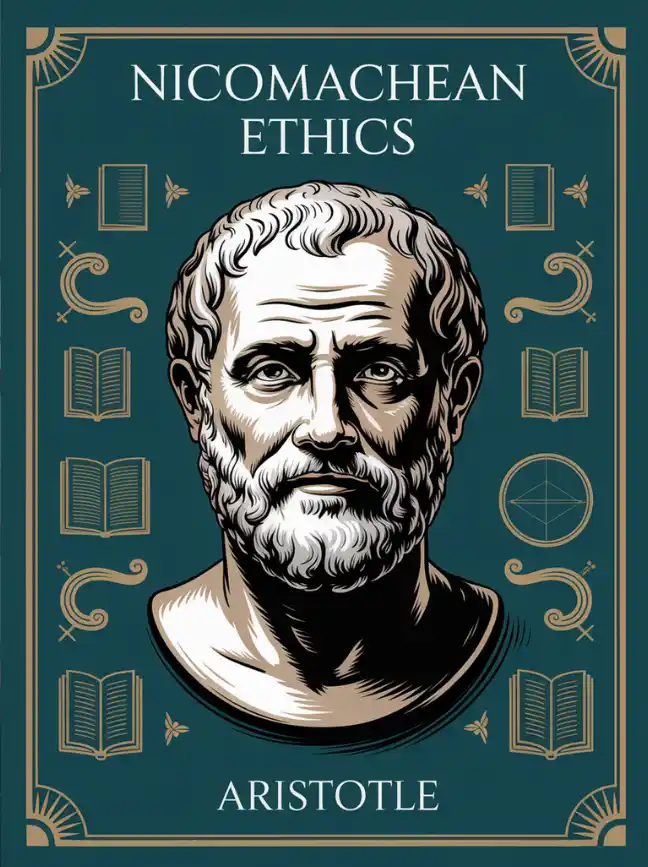C 61. H G M G R
D E H P
Not on the same night as he had stated, but the next morning, the Count of Monte Cristo went out by the Barrière d’Enfer, taking the road to Orléans. Leaving the village of Linas, without stopping at the telegraph, which flourished its great bony arms as he passed, the count reached the tower of Montlhéry, situated, as everyone knows, upon the highest point of the plain of that name. At the foot of the hill the count dismounted and began to ascend by a little winding path, about eighteen inches wide; when he reached the summit he found himself stopped by a hedge, upon which green fruit had succeeded to red and white flowers.
Monte Cristo looked for the entrance to the enclosure, and was not long in finding a little wooden gate, working on willow hinges, and fastened with a nail and string. The count soon mastered the mechanism, the gate opened, and he then found himself in a little garden, about twenty feet long by twelve wide, bounded on one side by part of the hedge, which contained the ingenious contrivance we have called a gate, and on the other by the old tower, covered with ivy and studded with wall-flowers.
No one would have thought in looking at this old, weather-beaten, floral-decked tower (which might be likened to an elderly dame dressed up to receive her grandchildren at a birthday feast) that it would have been capable of telling strange things, if,—in addition to the menacing ears which the proverb says all walls are provided with,—it had also a voice.
The garden was crossed by a path of red gravel, edged by a border of thick box, of many years’ growth, and of a tone and color that would have delighted the heart of Delacroix, our modern
Rubens. This path was formed in the shape of the figure of , thus, in its windings, making a walk of sixty feet in a garden of only twenty.
Never had Flora, the fresh and smiling goddess of gardeners, been honored with a purer or more scrupulous worship than that which was paid to her in this little enclosure. In fact, of the twenty rose-trees which formed the parterre, not one bore the mark of the slug, nor were there evidences anywhere of the clustering aphis which is so destructive to plants growing in a damp soil. And yet it was not because the damp had been excluded from the garden; the earth, black as soot, the thick foliage of the trees betrayed its presence; besides, had natural humidity been wanting, it could have been immediately supplied by artificial means, thanks to a tank of water, sunk in one of the corners of the garden, and upon which were stationed a frog and a toad, who, from antipathy, no doubt, always remained on the two opposite sides of the basin. There was not a blade of grass to be seen in the paths, or a weed in the flower- beds; no fine lady ever trained and watered her geraniums, her cacti, and her rhododendrons, in her porcelain jardinière with more pains than this hitherto unseen gardener bestowed upon his little enclosure.
Monte Cristo stopped after having closed the gate and fastened the string to the nail, and cast a look around.
“The man at the telegraph,” said he, “must either engage a gardener or devote himself passionately to agriculture.”
Suddenly he struck against something crouching behind a wheelbarrow filled with leaves; the something rose, uttering an exclamation of astonishment, and Monte Cristo found himself facing a man about fifty years old, who was plucking strawberries, which he was placing upon grape leaves. He had twelve leaves and about as many strawberries, which, on rising suddenly, he let fall from his hand.
“You are gathering your crop, sir?” said Monte Cristo, smiling.
“Excuse me, sir,” replied the man, raising his hand to his cap; “I am not up there, I know, but I have only just come down.”
“Do not let me interfere with you in anything, my friend,” said the count; “gather your strawberries, if, indeed, there are any left.”
“I have ten left,” said the man, “for here are eleven, and I had twenty-one, five more than last year. But I am not surprised; the spring has been warm this year, and strawberries require heat, sir.
This is the reason that, instead of the sixteen I had last year, I have this year, you see, eleven, already plucked—twelve, thirteen, fourteen, fifteen, sixteen, seventeen, eighteen. Ah, I miss three, they were here last night, sir—I am sure they were here—I counted them.
It must be the son of Mère Simon who has stolen them; I saw him strolling about here this morning. Ah, the young rascal—stealing in a garden—he does not know where that may lead him to.”
“Certainly, it is wrong,” said Monte Cristo, “but you should take into consideration the youth and greediness of the delinquent.”
“Of course,” said the gardener, “but that does not make it the less unpleasant. But, sir, once more I beg pardon; perhaps you are an officer that I am detaining here.” And he glanced timidly at the count’s blue coat.
“Calm yourself, my friend,” said the count, with the smile which he made at will either terrible or benevolent, and which now expressed only the kindliest feeling; “I am not an inspector, but a traveller, brought here by a curiosity he half repents of, since he causes you to lose your time.”
“Ah, my time is not valuable,” replied the man with a melancholy smile. “Still it belongs to government, and I ought not to waste it; but, having received the signal that I might rest for an hour” (here he glanced at the sun-dial, for there was everything in the enclosure of Montlhéry, even a sun-dial), “and having ten minutes before me, and my strawberries being ripe, when a day longer—by-the-by, sir, do you think dormice eat them?”
“Indeed, I should think not,” replied Monte Cristo; “dormice are bad neighbors for us who do not eat them preserved, as the Romans did.”
“What? Did the Romans eat them?” said the gardener—“ate dormice?”
“I have read so in Petronius,” said the count.
“Really? They can’t be nice, though they do say ‘as fat as a dormouse.’ It is not a wonder they are fat, sleeping all day, and only waking to eat all night. Listen. Last year I had four apricots—they stole one, I had one nectarine, only one—well, sir, they ate half of it on the wall; a splendid nectarine—I never ate a better.”
“You ate it?”
“That is to say, the half that was left—you understand; it was exquisite, sir. Ah, those gentlemen never choose the worst morsels; like Mère Simon’s son, who has not chosen the worst strawberries.
But this year,” continued the horticulturist, “I’ll take care it shall not happen, even if I should be forced to sit by the whole night to watch when the strawberries are ripe.”
Monte Cristo had seen enough. Every man has a devouring passion in his heart, as every fruit has its worm; that of the telegraph man was horticulture. He began gathering the grape-leaves which screened the sun from the grapes, and won the heart of the gardener.
“Did you come here, sir, to see the telegraph?” he said.
“Yes, if it isn’t contrary to the rules.”
“Oh, no,” said the gardener; “not in the least, since there is no danger that anyone can possibly understand what we are saying.”
“I have been told,” said the count, “that you do not always yourselves understand the signals you repeat.”
“That is true, sir, and that is what I like best,” said the man, smiling.
“Why do you like that best?”
“Because then I have no responsibility. I am a machine then, and nothing else, and so long as I work, nothing more is required of me.”
“Is it possible,” said Monte Cristo to himself, “that I can have met with a man that has no ambition? That would spoil my plans.”
“Sir,” said the gardener, glancing at the sun-dial, “the ten minutes are almost up; I must return to my post. Will you go up with me?”
“I follow you.”
Monte Cristo entered the tower, which was divided into three stories. The tower contained implements, such as spades, rakes,
watering-pots, hung against the wall; this was all the furniture. The second was the man’s conventional abode, or rather sleeping-place; it contained a few poor articles of household furniture—a bed, a table, two chairs, a stone pitcher—and some dry herbs, hung up to the ceiling, which the count recognized as sweet peas, and of which the good man was preserving the seeds; he had labelled them with as much care as if he had been master botanist in the Jardin des Plantes.
“Does it require much study to learn the art of telegraphing?” asked Monte Cristo.
“The study does not take long; it was acting as a supernumerary
that was so tedious.”
“And what is the pay?”
“A thousand francs, sir.”
“It is nothing.”
“No; but then we are lodged, as you perceive.”
Monte Cristo looked at the room. They passed to the third story; it was the telegraph room. Monte Cristo looked in turn at the two iron handles by which the machine was worked. “It is very interesting,” he said, “but it must be very tedious for a lifetime.”
“Yes. At first my neck was cramped with looking at it, but at the end of a year I became used to it; and then we have our hours of
recreation, and our holidays.”
“Holidays?”
“Yes.”
“When?”
“When we have a fog.”
“Ah, to be sure.”
“Those are indeed holidays to me; I go into the garden, I plant, I prune, I trim, I kill the insects all day long.”
“How long have you been here?”
“Ten years, and five as a supernumerary make fifteen.”
“You are——”
“Fifty-five years old.”
“How long must you have served to claim the pension?”
“Oh, sir, twenty-five years.”
“And how much is the pension?”
“A hundred crowns.”
“Poor humanity!” murmured Monte Cristo.
“What did you say, sir?” asked the man.
“I was saying it was very interesting.”
“What was?”
“All you were showing me. And you really understand none of
these signals?”
“None at all.”
“And have you never tried to understand them?”
“Never. Why should I?”
“But still there are some signals only addressed to you.”
“Certainly.”
“And do you understand them?”
“They are always the same.”
“And they mean——”
“‘Nothing new; You have an hour;’ or ‘Tomorrow.’”
“This is simple enough,” said the count; “but look, is not your correspondent putting itself in motion?”
“Ah, yes; thank you, sir.”
“And what is it saying—anything you understand?”
“Yes; it asks if I am ready.”
“And you reply?”
“By the same sign, which, at the same time, tells my right-hand correspondent that I am ready, while it gives notice to my left-hand
correspondent to prepare in his turn.”
“It is very ingenious,” said the count.
“You will see,” said the man proudly; “in five minutes he will speak.”
“I have, then, five minutes,” said Monte Cristo to himself; “it is more time than I require. My dear sir, will you allow me to ask you a
question?”
“What is it, sir?”
“You are fond of gardening?”
“Passionately.”
“And you would be pleased to have, instead of this terrace of twenty feet, an enclosure of two acres?”
“Sir, I should make a terrestrial paradise of it.”
“You live badly on your thousand francs?”
“Badly enough; but yet I do live.”
“Yes; but you have a wretchedly small garden.”
“True, the garden is not large.”
“And, then, such as it is, it is filled with dormice, who eat
everything.”
“Ah, they are my scourges.”
“Tell me, should you have the misfortune to turn your head while your right-hand correspondent was telegraphing——”
“I should not see him.”
“Then what would happen?”
“I could not repeat the signals.”
“And then?”
“Not having repeated them, through negligence, I should be fined.”
“How much?”
“A hundred francs.”
“The tenth of your income—that would be fine work.”
“Ah!” said the man.
“Has it ever happened to you?” said Monte Cristo.
“Once, sir, when I was grafting a rose-tree.”
“Well, suppose you were to alter a signal, and substitute another?”
“Ah, that is another case; I should be turned off, and lose my
pension.”
“Three hundred francs?”
“A hundred crowns, yes, sir; so you see that I am not likely to do any of these things.”
“Not even for fifteen years’ wages? Come, it is worth thinking
about?”
“For fifteen thousand francs?”
“Yes.”
“Sir, you alarm me.”
“Nonsense.”
“Sir, you are tempting me?”
“Just so; fifteen thousand francs, do you understand?”
“Sir, let me see my right-hand correspondent.”
“On the contrary, do not look at him, but at this.”
“What is it?”
“What? Do you not know these bits of paper?”
“Bank-notes!”
“Exactly; there are fifteen of them.”
“And whose are they?”
“Yours, if you like.”
“Mine?” exclaimed the man, half-suffocated.
“Yes; yours—your own property.”
“Sir, my right-hand correspondent is signalling.”
“Let him signal.”
“Sir, you have distracted me; I shall be fined.”
“That will cost you a hundred francs; you see it is your interest to take my bank-notes.”
“Sir, my right-hand correspondent redoubles his signals; he is impatient.”
“Never mind—take these;” and the count placed the packet in the man’s hands. “Now this is not all,” he said; “you cannot live upon
your fifteen thousand francs.”
“I shall still have my place.”
“No, you will lose it, for you are going to alter your correspondent’s
message.”
“Oh, sir, what are you proposing?”
“A jest.”
“Sir, unless you force me——”
“I think I can effectually force you;” and Monte Cristo drew another packet from his pocket. “Here are ten thousand more francs,” he said, “with the fifteen thousand already in your pocket, they will make twenty-five thousand. With five thousand you can buy a pretty little house with two acres of land; the remaining twenty thousand will
bring you in a thousand francs a year.”
“A garden with two acres of land!”
“And a thousand francs a year.”
“Oh, heavens!”
“Come, take them,” and Monte Cristo forced the bank-notes into
his hand.
“What am I to do?”
“Nothing very difficult.”
“But what is it?”
“To repeat these signs.” Monte Cristo took a paper from his pocket, upon which were drawn three signs, with numbers to indicate the order in which they were to be worked.
“There, you see it will not take long.”
“Yes; but——”
“Do this, and you will have nectarines and all the rest.”
The shot told; red with fever, while the large drops fell from his brow, the man executed, one after the other, the three signs given by the count, in spite of the frightful contortions of the right-hand correspondent, who, not understanding the change, began to think the gardener had gone mad. As to the left-hand one, he conscientiously repeated the same signals, which were finally transmitted to the Minister of the Interior.
“Now you are rich,” said Monte Cristo.
“Yes,” replied the man, “but at what a price!”
“Listen, friend,” said Monte Cristo. “I do not wish to cause you any remorse; believe me, then, when I swear to you that you have wronged no man, but on the contrary have benefited mankind.”
The man looked at the bank-notes, felt them, counted them, turned pale, then red, then rushed into his room to drink a glass of water, but he had no time to reach the water-jug, and fainted in the midst of his dried herbs. Five minutes after the new telegram reached the minister, Debray had the horses put to his carriage, and drove to Danglars’ house.
“Has your husband any Spanish bonds?” he asked of the baroness.
“I think so, indeed! He has six millions’ worth.”
“He must sell them at whatever price.”
“Why?”
“Because Don Carlos has fled from Bourges, and has returned to Spain.”
“How do you know?” Debray shrugged his shoulders.
“The idea of asking how I hear the news,” he said.
The baroness did not wait for a repetition; she ran to her husband, who immediately hastened to his agent, and ordered him to sell at any price. When it was seen that Danglars sold, the Spanish funds fell directly. Danglars lost five hundred thousand francs; but he rid himself of all his Spanish shares. The same evening the following was read in Le Messager:
“[By telegraph.] The king, Don Carlos, has escaped the vigilance of his guardians at Bourges, and has returned to Spain by the Catalonian frontier. Barcelona has risen in his favor.”
All that evening nothing was spoken of but the foresight of Danglars, who had sold his shares, and of the luck of the stock- jobber, who only lost five hundred thousand francs by such a blow.
Those who had kept their shares, or bought those of Danglars, looked upon themselves as ruined, and passed a very bad night.
Next morning Le Moniteur contained the following:
“It was without any foundation that Le Messager yesterday announced the flight of Don Carlos and the revolt of Barcelona. The king (Don Carlos) has not left Bourges, and the peninsula is in the enjoyment of profound peace. A telegraphic signal, improperly interpreted, owing to the fog, was the cause of this error.”
The funds rose one per cent higher than before they had fallen.
This, reckoning his loss, and what he had missed gaining, made the difference of a million to Danglars.
“Good,” said Monte Cristo to Morrel, who was at his house when the news arrived of the strange reverse of fortune of which Danglars had been the victim, “I have just made a discovery for twenty-five thousand francs, for which I would have paid a hundred thousand.”
“What have you discovered?” asked Morrel.
“I have just discovered how a gardener may get rid of the dormice that eat his peaches.”





